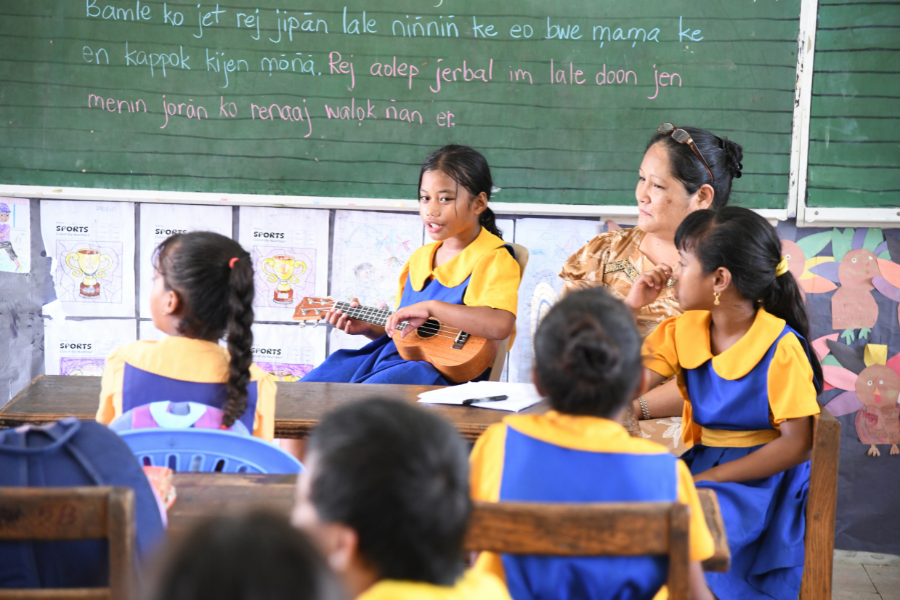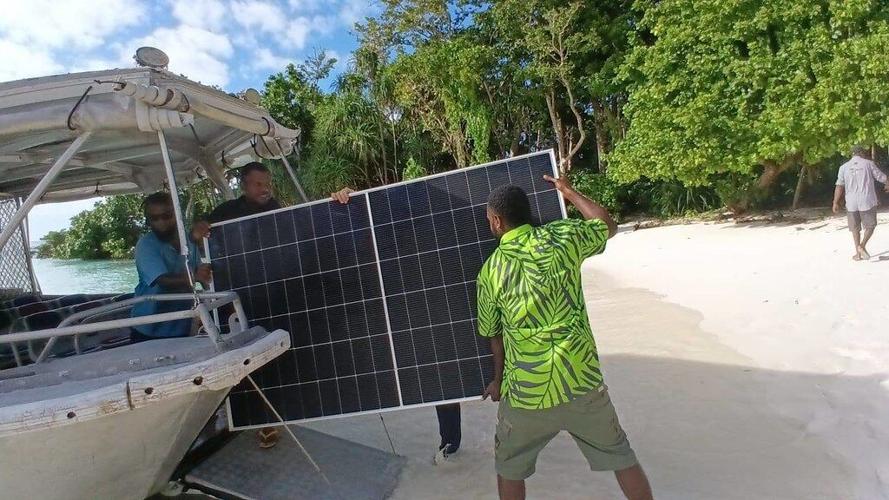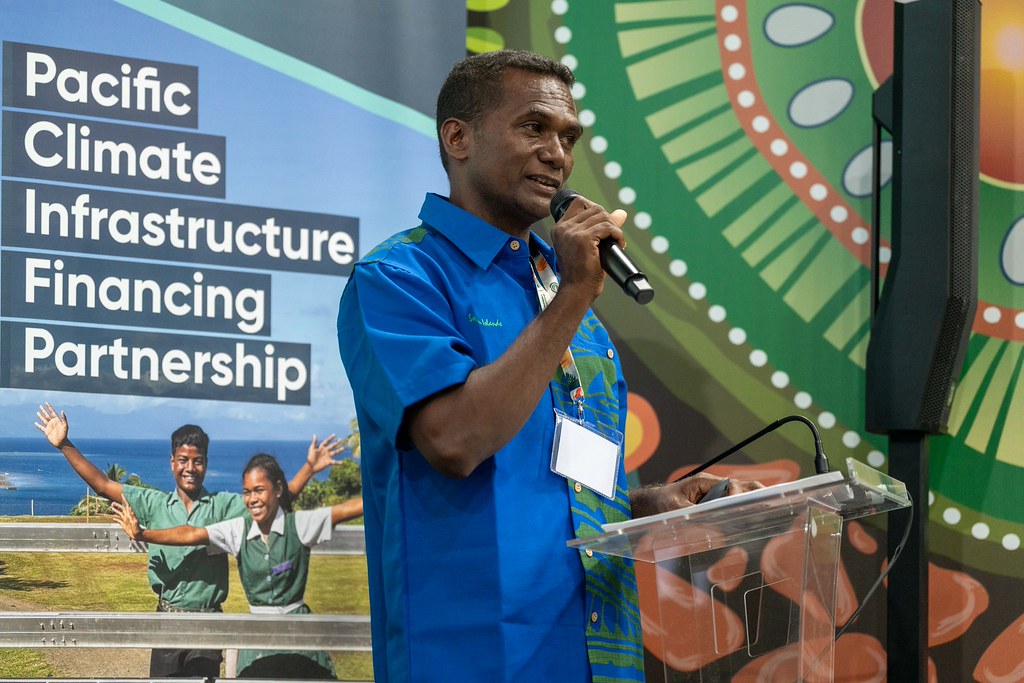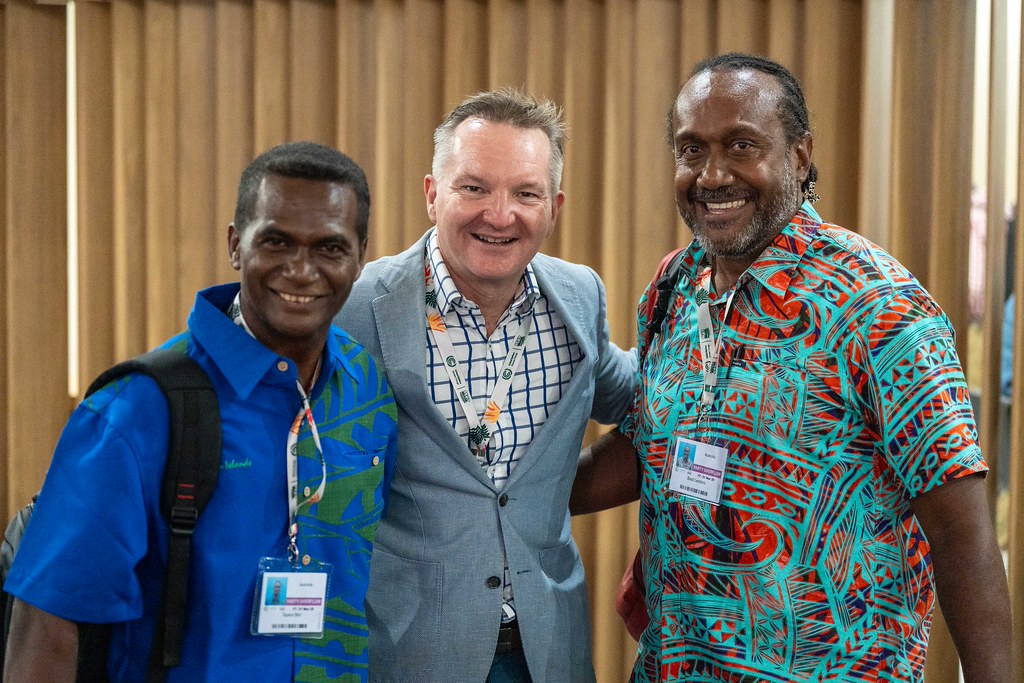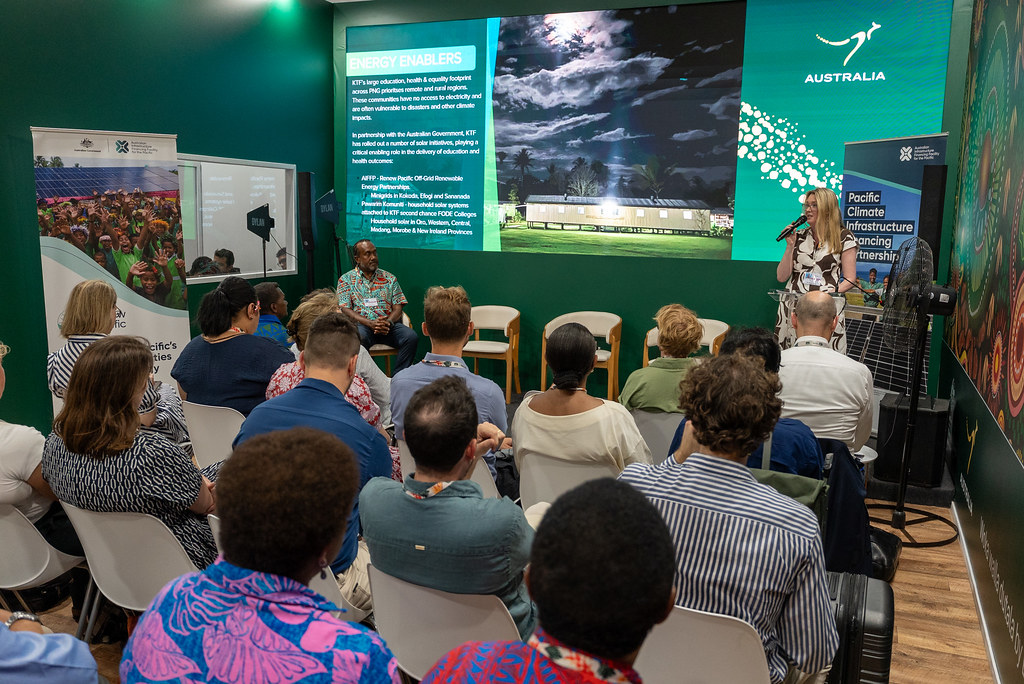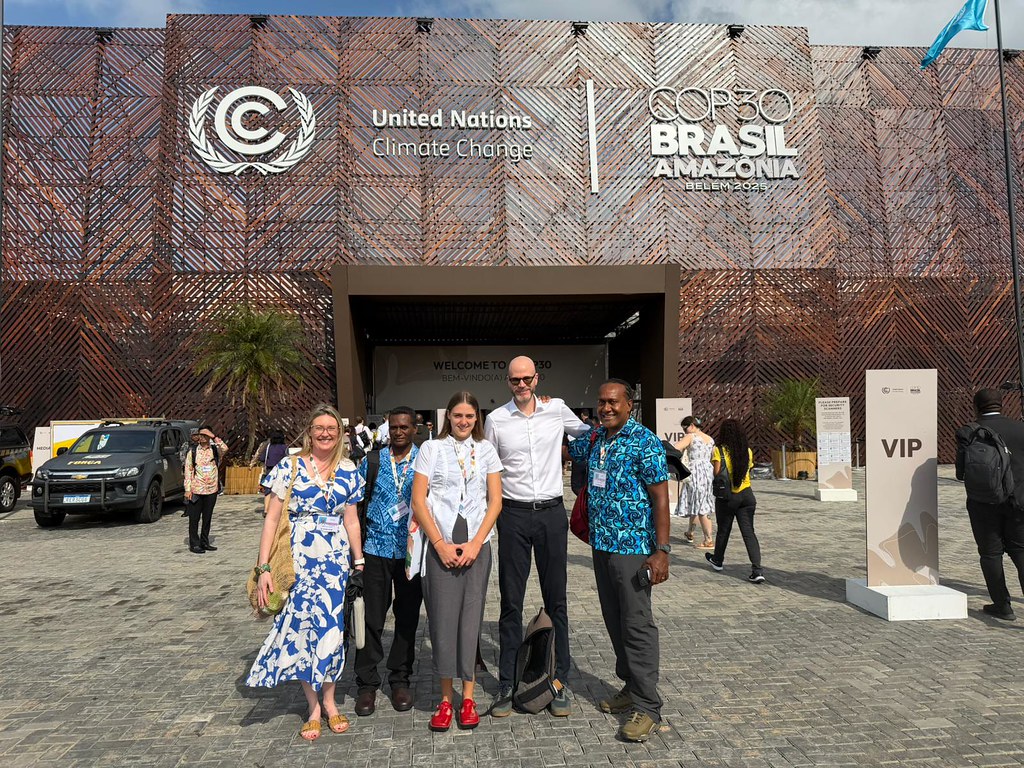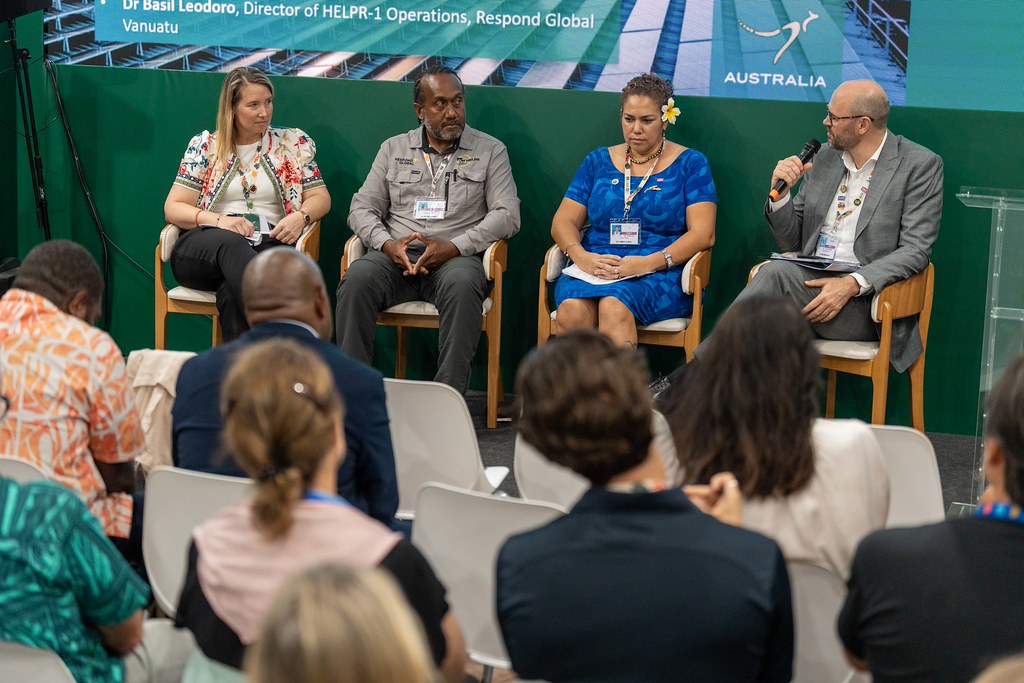The REnew Pacific delegation has returned home after an incredible week at COP30 in Belém, where Pacific-led energy solutions took centre stage across high-profile events, panel discussions and partner engagements.
REnew Pacific is Australia’s AUD $75 million investment in off-grid renewable energy for remote and rural communities across the Pacific and Timor-Leste. Announced at last year’s COP by Australia’s Minister for Climate Change, the Hon Chris Bowen, the program is made possible through the Pacific Climate Infrastructure Financing Partnership (PCIFP), a AUD $350 million initiative delivered by the Australian Infrastructure Financing Facility for the Pacific (AIFFP).
From standing-room-only crowds at the Australian Pavilion to technical conversations at the Disaster Resilient Infrastructure Pavilion, the delegation showcased how communities across the Pacific and Timor-Leste are driving a practical and inclusive clean energy transition, supported by Australian Government funding.
Throughout the week, leaders from projects in Vanuatu, Solomon Islands and Papua New Guinea shared frontline insights on how solar systems are transforming essential services in some of the region’s most remote and climate-vulnerable locations. Their stories highlighted the momentum of REnew Pacific in its first year, building on earlier Business Partnerships Platform pilots, to deliver reliable power to schools, clinics and community facilities that have long operated without safe and affordable electricity.
Here are the highlights:
Powering climate resilience across the Blue Pacific
The Australian Pavilion was standing room only as Australian and Pacific leaders heard how community-led solar solutions through REnew Pacific are strengthening essential health, education and community services across the Pacific and Timor-Leste, with a spotlight on Vanuatu, Solomon Islands and Papua New Guinea. The session featured Ambassador for Climate Change Will Nankervis, REnew Pacific Team Leader Mohammed Angawi, Dr Basil Leodoro from Respond Global’s HELPR-1 project, Tapera Bird from Superfly and Dr Genevieve Nelson from KTF (Kokoda Track Foundation). Together they shared lessons from the HELPR-1 vessel, hybrid solar systems and whole-of-village mini-grids, showing how reliable clean energy is transforming daily life in remote communities.
🎬 Watch the session.
Shared futures: Building climate and energy partnerships in the Pacific
Hosted by the Department of Climate Change, Energy, the Environment and Water at the Australian Pavilion, this session brought together a high-level line-up to discuss what genuine partnership looks like in advancing climate and energy resilience. Minister Chris Bowen was joined by Tuvalu’s Hon Dr Maina Talia, the Marshall Islands’ Hon Bremity Lakjohn, Ambassador Will Nankervis, Coral Pasisi from the Pacific Community and Ingrid Lundberg from the Department. Dr Basil Leodoro contributed insights on community-led resilience in Vanuatu’s remote islands.
🎬 Watch the session.
Pacific priorities for disaster-resilient infrastructure
Hosted by the Australian Infrastructure Financing Facility for the Pacific at the Coalition for Disaster Resilient Infrastructure Pavilion, this session highlighted how clean energy and climate-resilient infrastructure are supporting some of the Pacific’s most remote and disaster-exposed communities. Chaired by Mohammed Angawi and featuring a keynote from DFAT’s Emily Luck, the discussion showcased practical examples of resilience across health, education, transport and coastal protection. Speakers included Dr Basil Leodoro, Dr Genevieve Nelson, Christian Nielsen, Takena Redfern and Kesaya Baba, who shared how communities are using clean energy and local stewardship to build infrastructure that is resilient, culturally grounded and built to last
🎬Watch the session.
COP30 reinforced the strength of Pacific leadership in shaping practical, community-led climate and energy solutions. The week highlighted the essential role of clean, reliable power in strengthening services in remote communities and the value of partnerships grounded in local knowledge. Throughout the conference, films showcasing REnew Pacific and Business Partnerships Platform project impact played across the Australian Pavilion, helping share Pacific stories with a global audience. The momentum built in Belém positions REnew Pacific to continue supporting governments and communities as they drive a cleaner and more resilient future across the region.
Our huge thanks to all our partners, speakers and supporters who helped bring Pacific leadership to the world stage at COP30!
Check out the photos from the week below.
Find out more about REnew Pacific.
